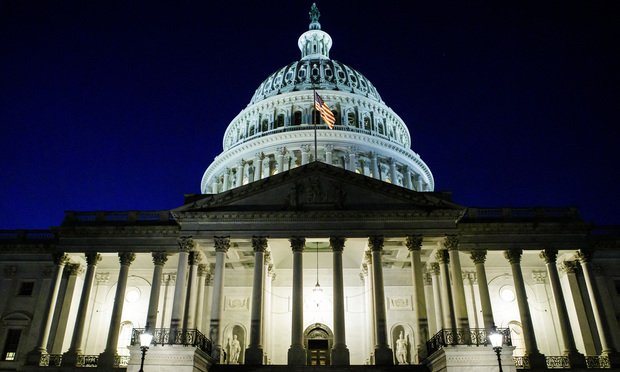 U.S. Capitol Building. (Source: Shutterstock)
U.S. Capitol Building. (Source: Shutterstock)
I've been putting off writing about the looming possibility that the United States would default on its existing contractual obligations to pay its debts because I sincerely believe that as dysfunctional as our political system has become, surely it hasn't gotten so bad that it would intentionally inflict such a disastrous wound on America's economy and its long term standing in the world. I would bet you $1 million that China would never default on its debt. But as the deadline grows closer, it's time to start preparing for what a debt default would look like, how it would impact your credit union and what you may want to explain to your members.
First and foremost, for financial institutions, what the media is describing as a dispute about fiscal priorities is actually a threat to intentionally start a potentially open-ended banking crisis. After all, one of the safest investments your credit union can make is to invest in bonds guaranteed by the full faith and credit of the United States Government – that's why these securities are given a 0% risk rating. However, by refusing to honor our debts, the United States will be tarnishing its reputation, making lending more expensive, not only for us but for our kids.
Recommended For You
Fortunately, or unfortunately depending on how you look at it, this is not the first time America has come close to defaulting on its debt. In 2011, the Federal Reserve's Open Market Committee, a group that included Janet Yellin, discussed the steps it could take in the event Congress did not vote to raise the debt ceiling. A transcript of that meeting is now available and provides some pretty good clues as to what the Fed might consider doing in the event of a default today.
Most importantly, at the time of the meeting, there was a consensus that while bills would have to go unpaid, the Treasury had no choice but to continue to pay off the interest owed on Government bonds. I'll bet another $1 million that they would take the same steps now, but don't want to admit it because there might be some elected officials who actually think this is a risk worth taking. Conversely, certain government payments would be delayed. At the meeting, there was consensus that the only thing worse than not sending out government benefits was to send out ACH payments that could not be honored.
Against this backdrop, imagine you are a teller in your friendly neighborhood credit union. You come into work the day after Congress fails to extend the debt ceiling. What talking points will she have to placate the irate member who realizes that her Social Security payments are going to be delayed even as the federal government honors bond payments?
Once again, your credit union could easily be blamed for something over which it has no control. After all, you are the face of your members' finances. But upstairs in the executive suite, you have even more immediate concerns.
In the days leading up to the culmination of the 2011 debt crisis, there was a huge amount of money that flooded into banks. Disproportionately, this money flew into the biggest of the big. But, there undoubtedly will be some credit unions that experience a sudden surge of cash similar to what we saw during the pandemic. Is the NCUA ready to communicate with credit unions about their short-term expectations (i.e. are they going to cut these credit unions some slack when it comes to the sudden downturn in their risk ratios)? And if they are, wouldn't it be best to communicate this contingency before a default as opposed to the evening of?
One more interesting tidbit to be gleaned from the 2011 near miss is that we may once again see the Fed emerge as the banker of last resort. In 2011, the Fed was concerned that money markets, which rely on very short-term investments, will once again face the prospect of "breaking the buck," which basically means that money markets could no longer guarantee the safety of their members' money. This would become an immediate issue in the event of an actual default.
None other than Ben Bernanke raised the possibility that the Fed could set up a special lending facility pursuant to its power to provide loans to non-depositories under U.S. Code, 12 U.S.C. § 343. At the time, this was considered an option of last resort. But in the ensuing years, the Fed has normalized the use of such facilities, most recently in the aftermath of the Silicon Valley Bank run.
In other words, there is a very real possibility that the Fed will have to play an even larger role in the American economy and banking system. In fact, it could do such a good job that it could find itself being criticized for facilitating a continuing stalemate. This isn't fair, but it is reality.
 Henry Meier, Esq.
Henry Meier, Esq. Henry Meier is the former General Counsel of the New York Credit Union Association, where he authored the popular New York State of Mind blog. He now provides legal advice to credit unions on a broad range of legal, regulatory and legislative issues. He can be reached at (518) 223-5126 or via email at [email protected].
© Touchpoint Markets, All Rights Reserved. Request academic re-use from www.copyright.com. All other uses, submit a request to [email protected]. For more inforrmation visit Asset & Logo Licensing.






